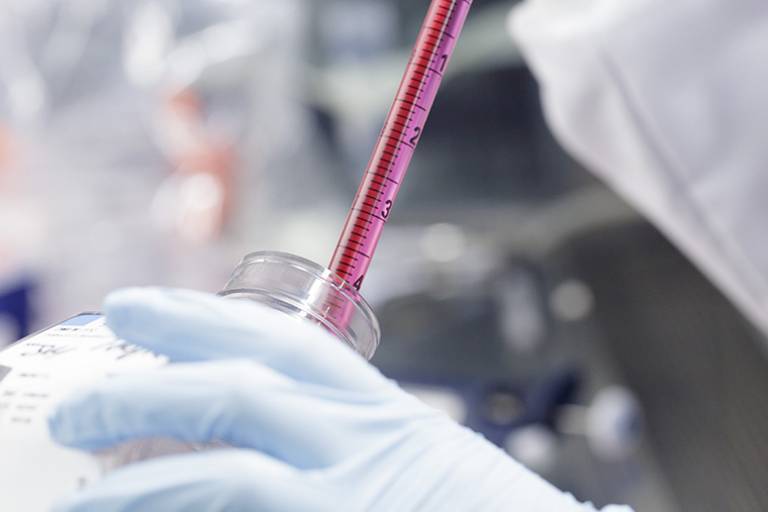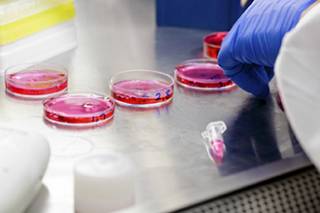New funding for UCL cancer centres announced
20 December 2016

The UCL Cancer Research UK Centre, led by Professors Daniel Hochhauser and Henning Walczak, and UCL's Experimental Cancer Medicine Centre (ECMC), led by Professors Tim Meyer and John Hartley, have successfully secured new funding as part of a £226 million UK investment announced by Cancer Research UK.
Cancer Research UK Centres bring together research teams from universities, research institutions and NHS hospitals to focuses on translational research – getting cutting edge discoveries from the laboratory to patients and learning as much as possible from patients to initiate new research ideas and programmes.
One of 13 Cancer Research UK Centres, the UCL Centre provides crucial support for translational cancer research and training at UCL and its partner clinical institutions including UCLH, the Royal Free and Great Ormond Street Hospital. The renewed funding reflects UCL's leading reputation and expertise in advancing world-class cancer research and clinical studies.
UCL's Experimental Cancer Medicine Centre (ECMC) is one of 18 centres that form a UK-wide network that drives the discovery, development and testing of new anti-cancer treatments for patients - funded by Cancer Research UK and Departments of Health.
UCL ECMC collaborates with centres across the ECMC network and throughout UCL and it's partner hospitals to progress clinical cancer research. The Centre supports a dedicated Clinical Research Facility (CRF) based at UCLH where a medical team work together on a wide range of early phase clinical trials.
Further information
- Cancer Research UK press release
- Cancer Research UK-UCL Centre
- UCL Experimental Cancer Medicine Centre
- NIHR UCLH Clinical Research Facility
Related news

Cancer Research UK-UCL Centre receives £4m Accelerator Award
Cancer Research UK is investing £16m in four UK-wide collaborations to inspire new approaches to understanding and treating cancers with low survival. The Cancer Research UK-UCL Centre will receive £4 million to roll out a national post-mortem tissue bank from patients with hard to treat and metastatic cancer.
 Close
Close

